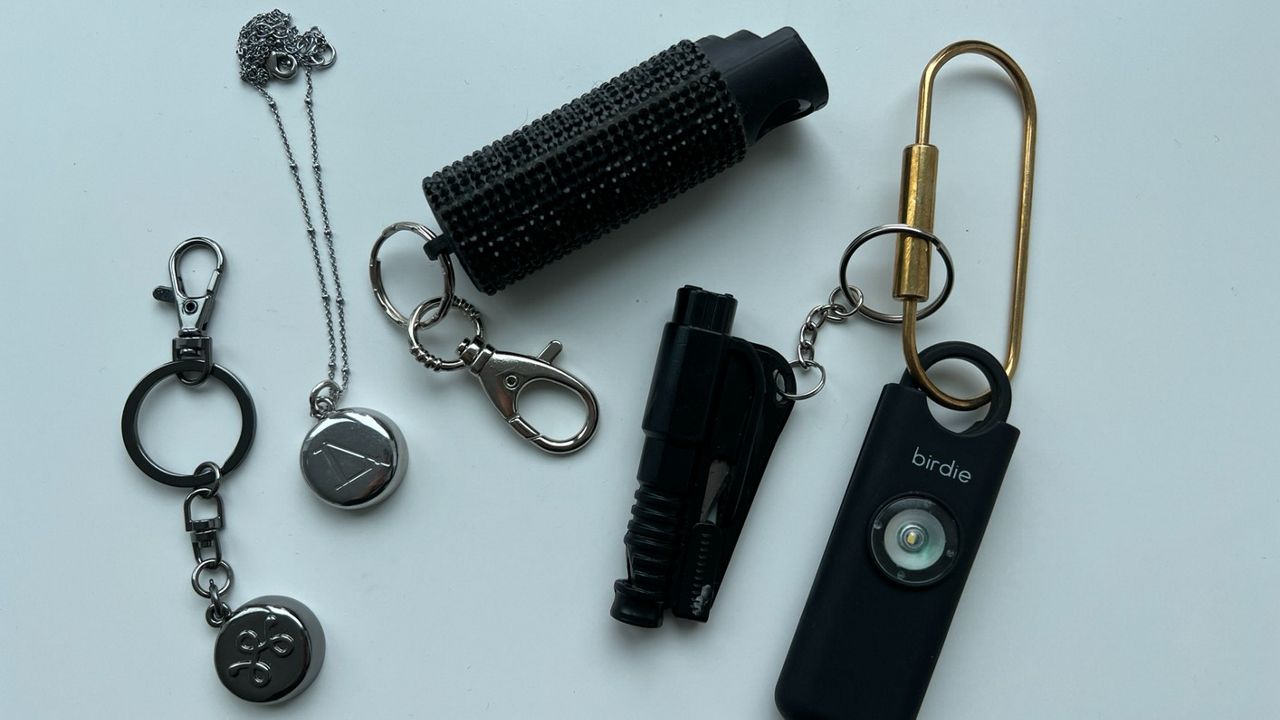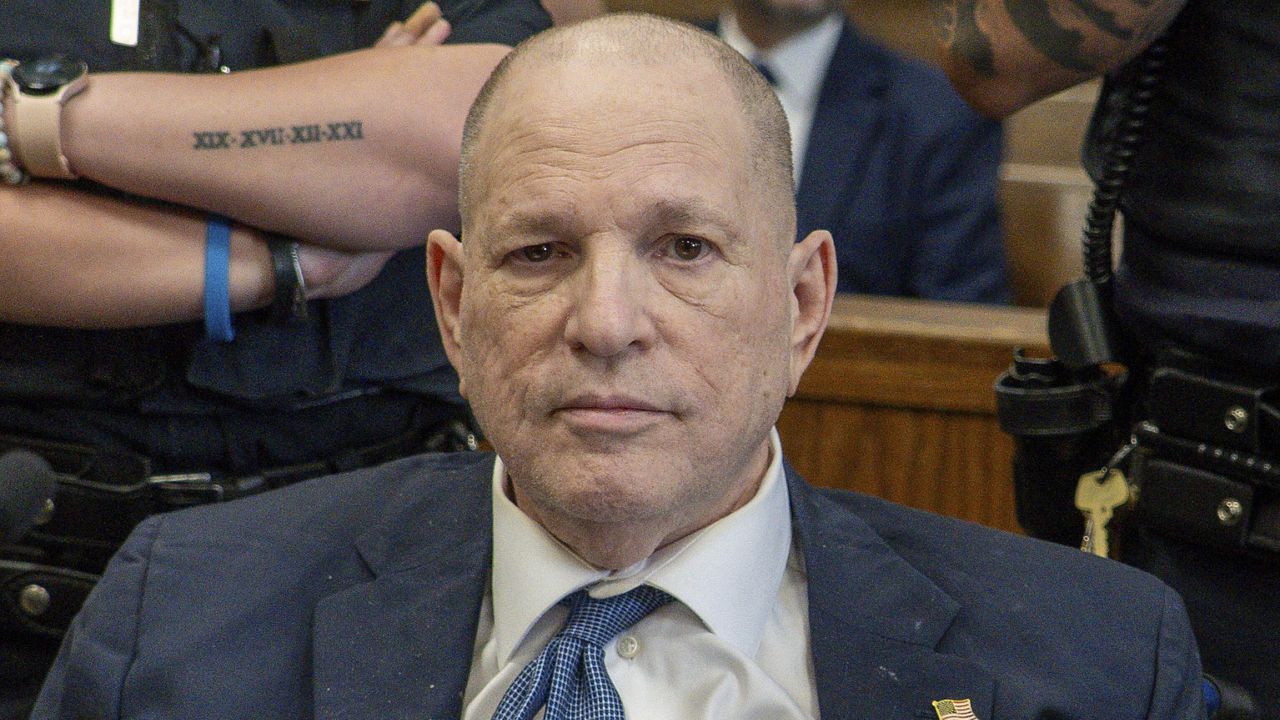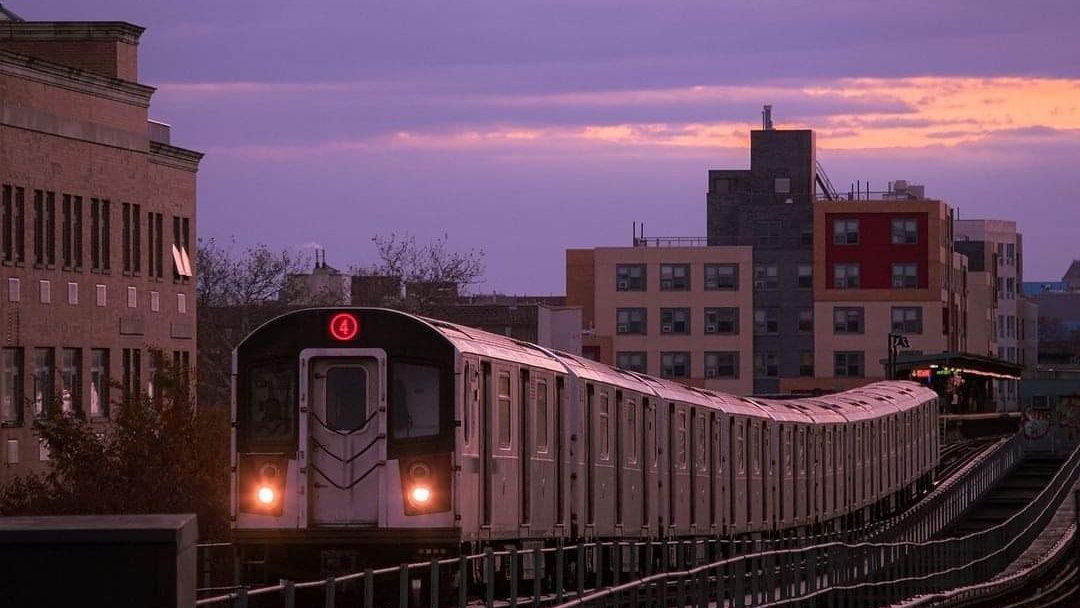Lipi Chokshi had been living in New York for about one month when she had an unsettling experience on the subway last February.
“I just got that kind of feeling when someone's watching you, but I kind of just brushed it off,” Chokshi, 25, said.
When she got on the train, she noticed a man who had been watching her boarded the same one, taking the seat right next to hers.
Her discomfort grew to the point where she decided to get off at the next stop that looked crowded and approach a female stranger for help.
When she turned back, she saw the man had gotten up and was staring at her through the train doors, she said.
Chokshi, who lives in Manhattan, said she’s grateful nothing came out of that incident, but it triggered a strong response for her.
“That was enough for me to be like, ‘OK, what would I have actually done in that situation?’ because I felt kind of helpless,” she said.
The incident compelled Chokshi, who is South Asian, to buy a slew of self-protective devices, including pepper spray, an alarm, a tiny electronic device shaped like a locket that can instantly share a person’s location with friends and the police, and even a seatbelt cutter and glass shatterer.
Under state law, certain items are illegal to own including stun guns, switchblade knives and metal and plastic knuckles. Pepper spray is not illegal to own.
She posted about her purchase on TikTok where hundreds of women commented about similar experiences and interest in the products.
Her post is one of many that can be found on social media where women share safety tips, products and experiences on social media. Search terms like “women’s safety nyc,” “nyc safety” and “women safety” elicit an endless scroll of content on platforms like TikTok, Twitter and Instagram from people hoping to crowdsource this knowledge.
Talk of self-defense comes amid rising concerns over violent crimes in the city, particularly against the Asian American and Pacific Islander community.
Anti-Asian incidents increased by 343% to 133 in 2021 compared with 30 incidents the previous year, according to NYPD.
Police officials say there were 32 attacks through April 3 of this year compared with 38 during the same period last year. While the number is down, it is still up considerably from 2019, where there was just one confirmed anti-Asian incident the entire year.
Over the past month, AAPI women and seniors have lined up at pepper spray giveaways in Lower Manhattan.
But legal experts caution that as more people arm themselves with protective devices – some of which can cause serious injuries – they could face criminal liability if these devices are used in the wrong situation.
“When you actually use it, the circumstances of your use will then decide that line between lawfulness and unlawfulness, and you could be in trouble with criminal laws as well as civil laws,” Elaine Chiu, professor of law at St. John’s University said.
Chiu said that the line hinges on a person proving they were facing an imminent threat of physical injury or death.
That could mean pointing to the words someone said, their physicality and body language, and how the interaction started.
There’s also the added layer of whether or not a “reasonable person” would have come to the same conclusion under the given circumstances, according to legal experts.
“If you really believed you or someone else was about to be hit, but a ‘normal person,’ another person with ‘normal senses,’ would not have reached that same conclusion, then you would not be justified in using force,” Joe Gim, chief of the hate crimes unit for the office of the Nassau County District Attorney, said during a virtual webinar by the Asian American Bar Association of New York’s Anti-Asian Violence Task Force.
But the prevalent fear among women and the Asian American community raises the question of whether a “reasonable person” under the law would come to the same conclusion that an imminent threat was present, Chiu said.
“They walk around kind of already scared, and so they're kind of more easily, I think, coming into this mental place where they think lots of people are threatening now to them,” she said.
It’s why Chiu and other legal experts urge caution when carrying and using the devices.
“Using mace or using pepper spray, definitely on some level is appealing or at least having it in my hand, or like possessing it in my purse. But its use, its actual deployment, I think, definitely has some legal risk to it,” Chiu said.
NYPD officials did not respond to requests for comment on this increasing reliance on personal safety devices amid fears of attacks in the city.
But whether or not a weapon is used, the mere possession of it can make a big impact on someone’s ability to navigate their day-to-day, according to psychologists.
“It's a way to deal with what might otherwise be overwhelming fear, overwhelming anxiety by feeling, ‘If I have a personal protection device, I’m increasing my feelings of controllability and that makes it easier for me to accept rising crime rates, the threat of danger or increasing odds that I might be at risk because if I didn't have that, then I wouldn't be able to live with the anxiety of thinking I might be the next statistic,’ ” said Emily Balcetis, associate professor of psychology at New York University.
Since the incident last February, Chokshi said she hasn’t had to use any of the devices, but that it’s helped her feel more secure.
“It just makes me feel a little bit more in control,” she said. “Obviously, these situations, there's a lot that is out of our control and so I'm having these, ‘I'm just like, OK, if something happens, I know I can protect myself a little bit at least.’”





_CC_PKG_Manufacturers_Tariffs_133971722_389)


